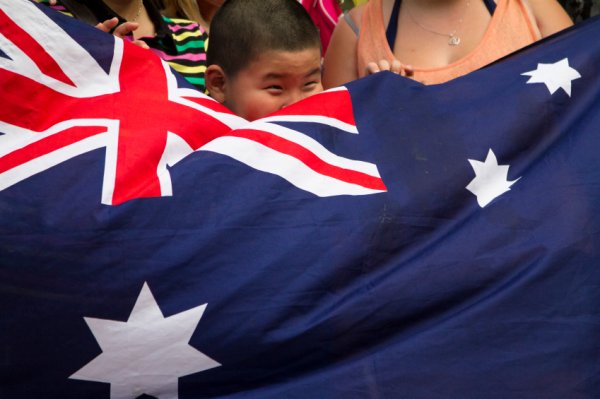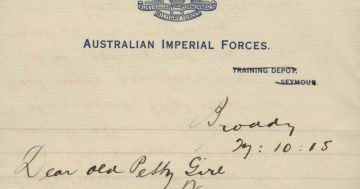
British author Ian McEwan wrote after 9/11: “It is hard to be cruel once you permit yourself to enter the mind of your victim. Imagining what it is like to be someone other than yourself is at the core of our humanity.”
Australian Muslims right now will be feeling like victims, victims of a frighteningly swift collapse of certainty in their world. Hitherto, first generation Australian Muslims will have appreciated the relative tolerance afforded them in the practice of their religion, even if some prejudice will soured their sense of acceptance in their new home. They will no doubt have felt this new society giving them affirmation – even encouragement – to hold and practise the faith of their forebears.
But they will have sensed that acceptance turn into suspicion in recent days. As the horrific images of barbarity and calculated terror have brought forward denunciations from political leaders, they know exactly what question lies behind the glances of many Australians: and where do YOU stand on this behaviour, follower of Islam?
Entering the mind of these “victims” right now won’t be easy for other Australians, because Muslim sensibilities are mostly opaque to Westerners. They would be surprised to learn, for example, that the concept of a pan-Islamic caliphate is not merely the fantasy of extremists, but a respectable sentiment among Islamic historians, who quite rightly see most of the political boundaries drawn on maps of the Middle East as the invention of European powers.
It should be easier for non-Muslim Australians, however, to understand some of the sectarianism that infects Muslim loyalties even in this country (Sunni versus Shi’ite, for example). Why? Because many of their own ancestors too arrived here carrying hatreds from “the old country”, vestiges of which survived several generations.
As a child of Irish Catholic descent, I heard stories about the deprivations visited on Ireland by British colonial policy. Stories like that shaped the cultural identity of countless thousands of young Australians; no doubt, generations later, when acts of IRA terror struck Britain, there would have been many who thought, in the dark places of their minds, “Well, the Brits had that coming…”
Being more recent arrivals, the old scores are fresher in the memory of Australian Muslims. It is natural that some understanding, some sympathy, will be felt for those fighting the ideological or religious battles they grew up learning about. In doing so, they merely relive an experience felt many times before in our immigrant society.
Letting go of those old hatreds, vacating the battlelines of our ancestry, is an essential element of surrendering to the blending forces of Australia’s dynamic melting-pot. The genius of our social experiment is powerful, but is always most tested in the first generation of arrivals.
The rally organised in Sydney’s Lakemba a few hours after the raids on terrorist suspects last week was a negation of the power of that Australian phenomenon, a repudiation of the onus on all of us to put our shared values ahead of the old hatreds. The Prime Minister described those who attended as “utterly unrepresentative of Australian Muslims”. Though in part about protesting the scapegoating of Muslims generally, there was a real extent to which it appeared to be expressing solidarity with those targeted in the raids.
It was something of a PR disaster for the Muslim community, sending a message to middle Australia that Muslims here believe there is no sentiment for imported violence in their midst (surely overreach, and likely to be debunked by evidence led in the media and the courts in coming days) or, worse still, that advocates of violent Islamism would be sheltered and nurtured in Muslim enclaves.
In an ideal world, Australian Muslims should have no need to demonstrate their primary loyalty to Australia and its values. Without any doubt, a wholesome majority of these Muslims understand and embrace the tenets of tolerance and peaceful behaviour this entails, even if it means setting aside some of the old loyalties.
But Australians right now need a little assurance that the tolerance they extend to the followers of Islam is being reciprocated, in thought and in deed. This is not made easier by the fact that Muslim communities are less hierarchical than some others; at any given time many possible leaders can be identified, and their opinions quoted as the views of “the Muslim community”.
But a co-ordinated message, projecting the voice of “mainstream Muslims”, would do much to avoid some anti-Muslim sentiment that stirs in our land, the rearing-up of which can only isolate and marginalise the young hotheads. Muslim leaders, however identified, need to make an effort to acknowledge that extremism does have a foothold – however small – in their ranks, and to emphatically signal to the broader community that they will be as willing to move against the purveyors of hate and violence as Australian government s and security forces presently are.

















